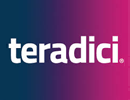
• School and College Rankings
2023 Top Creative Schools
Production Excellence - 2D Animation
Results based on over 5,500 students participants. Projects reviewed by 180 Judges that completed 58,000 reviews.
Rookies Global School Rankings
Official Rankings
Production Excellence in 2D Animation is a prestigious recognition bestowed upon schools that not only excel in teaching the intricate art of two-dimensional animation but also shine in nurturing a collaborative team environment, particularly evident in the exceptional results achieved by their students in the creation of compelling short films.
To formulate these rankings, we engaged industry-leading professionals to review student art portfolios based on criteria that encompass creative skills, technical proficiency, presentation quality, diversity of skills, project complexity, raw talent, and employment potential. Learn More.

Want to see rankings for other creative industries?
• Andrew McDonald - Co-founder @ The Rookies
We believe that schools emulating a production studio experience offer a significant advantage to students by fostering teamwork, fostering a deep understanding of production pipelines, honing scheduling expertise, managing resources effectively, and cultivating problem-solving abilities

Frequent Questions
What distinguishes our ranking system from conventional methods?
Unlike many other ranking systems that rely on traditional metrics like school size or faculty-to-student ratios, we take a unique approach. Our rankings are driven and judged by hundreds of industry professionals who review students' digital art portfolios. This provides an accurate and industry-relevant evaluation of students' skills, making our rankings especially meaningful for creative fields. We believe that for creative industries, traditional metrics always fall short, which is why our system prioritises the most critical aspect — how well schools prepare their students for entry level jobs.
How do you rank schools?
We employ a rigorous and equitable process to assess and rank creative and technical schools worldwide. Our rankings primarily rely on the individual performance of students representing each institution. Students undergo meticulous reviews, and their work is assigned a performance score, capped at 100 points. To determine a school's overall standing, we calculate the median student score, a fair measure that represents the middle point in a set of scores. We then reward excellence by granting bonus points to students designated as finalists, highly commended, runners-up, or winners in each category. This approach guarantees that our rankings are rooted in student skills and talents rather than school size or other biases, providing a transparent and impartial assessment of creative institutions.
Can schools pay to influence their rankings?
No, schools cannot pay to influence their rankings. We do not accept advertising money for any aspects related to rankings, ensuring that our assessments remain unbiased and fair. Additionally, entries submitted by students to the Rookie Awards are entirely free of charge, eliminating any potential favoritism related to social or economic factors.
What criteria are used to assess student work in the rankings?
The assessment of student work in our rankings is based on a multi-faceted approach. We consider various criteria, including creative skills, technical proficiency, presentation quality, the diversity of skills demonstrated, project complexity, raw talent, and employment potential. This comprehensive evaluation ensures that the rankings provide a well-rounded perspective on students' readiness for creative and technical roles in their respective fields.
Do schools need to apply to be included in the rankings?
No, schools do not need to apply to be considered for the rankings. We automatically evaluate schools based on the performance of their students in our annual Rookie Awards, making our rankings open and inclusive.
Do the rankings favour schools with more students?
Our rankings do not favour schools with larger student populations. Our ranking system is designed to be impartial and fair, regardless of school size. The rankings are based on objective criteria, such as the Median Student Scores, which reflects the capabilities of students, not the size of the school. Additionally, our use of carefully balanced bonus points ensures that recognition is fairly distributed among all schools, regardless of their student population. Our commitment is to provide a level playing field where every school has an equal opportunity to excel and be recognised for its students' achievements.
How many students from each school need to enter?
The number of students required from each school to enter varies depending on the category. On average, we require around 12 students to participate from each school, for each category. Our goal is to ensure a fair representation of student work across all disciplines, and we encourage schools to engage a suitable number of students based on the specific category requirements.
Can schools cheat by selecting only their best students?
Our ranking system is designed to be fair and transparent. We encourage and incentivise all students to participate, making it extremely challenging for schools to limit their participation. Additionally, we only accept entries directly from students, ensuring that administrators or faculty members cannot submit entries on their behalf.
A student made a mistake, will their score impact their rankings?
If a student makes a mistake in their submission, it typically won't significantly impact the overall results. We take into account the quality of each submission as a whole and consider various factors in our evaluation. Additionally, we exclude outliers, such as entries with broken content or obvious errors, to ensure fairness.
Do the rankings include online schools?
We embrace all types of educational facilities, including online schools, campus-based institutions, and hybrid models. Our rankings encompass a diverse range of education providers from across the globe.


Start your journey
Learn more about Rookies Global School Rankings®
Connect with our team to discover how Rookies Global School Rankings can benefit your school and enhance your reputation in creative industries.

